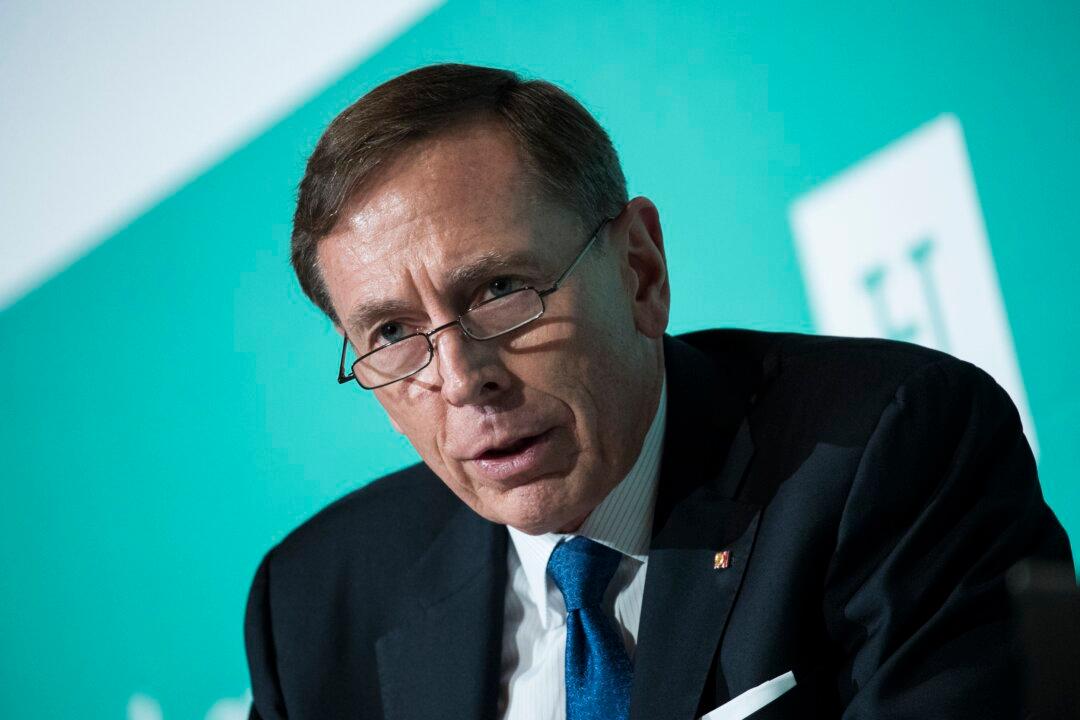President Donald Trump’s order to kill Iranian General Qassem Soleimani was “a very significant effort to reestablish deterrence, which obviously had not been shored up by the relatively insignificant responses up until now,” former CIA director and retired Gen. David Petraeus has said.
“The reasoning seems to be to show in the most significant way possible that the U.S. is just not going to allow the continued violence—the rocketing of our bases, the killing of an American contractor, the attacks on shipping, on unarmed drones—without a very significant response,” Petraeus told Foreign Policy when asked why Trump acted to kill Soleimani where previous presidents did not.





